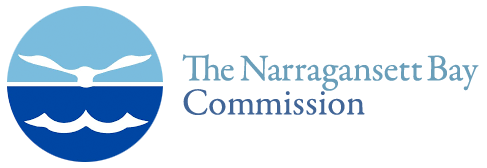Is it raining in Providence?
Rain can affect the water quality in our rivers. Use this map to explore what’s happening right now in our urban rivers.
Even if it’s not raining, urban rivers, like those in Providence and other cities, can have pollution from many sources: litter from the streets, bacteria from animal waste, viruses, chemicals, oil and grease, and even heavy metals from historical industrial pollution. This map only addresses potential Combined Sewer Overflows (CSOs).
So, while we all work together to make our urban rivers healthier, public health officials advise against direct contact like swimming in these waters no matter if it’s rained or not, and to always wash your hands if you have contacted these waters.
During rainstorms and up to 48 hours after a sewage overflow, there may be increased health risks from non-contact recreational activities, such as paddling, fishing, etc.
Verified Overflow Events in the last 30 Days
| Site Name | Activation Date | Deactivation Date | Date Verified |
|---|---|---|---|
| No data available in table |
Our pipes
Under the streets, a complex web of pipes brings used water away from homes and businesses to the wastewater treatment facility where it will become clean water.
There are hundreds of miles of underground sewer pipes that transport this used water to the wastewater treatment facilities in the Narragansett Bay Commission district. However, the Commission only owns and maintains approximately 110 miles of these pipes. The NBC pipes range in diameter from 8 inches to 110 inches. These pipes collect wastewater from approximately 360,000 people and 8,000 businesses located throughout the NBC service district and bring it to be safely and properly treated at one of the NBC’s two wastewater treatment facilities – Field’s Point and Bucklin Point. The NBC also operates and maintains eight remote pump stations, dozens of tide gates, and 64 active combined sewer overflow pipes throughout the district.
Within the NBC district, three communities have combined sewers. In a combined sewer, used water that comes from homes and businesses is combined with storm runoff. The runoff can contain pollutants like oil chemicals, and animal waste. During periods of heavy rain, the stormwater overwhelms the sewer pipes. Even the 110-inch (> 9 feet) diameter sewer gets overwhelmed! As a result, the system uses combined sewer overflows (CSOs) to send excess flows to local rivers so that the used water does not back up into homes and businesses. For more details about what a CSO is, why it’s important to deal with them, and how the NBC is working with the RI Department of Environmental Management to achieve clean water in our rivers and bay, click here.
To provide more treatment during these storm events, the NBC has constructed a deep rock tunnel, which temporarily stores the water and delivers it to the wastewater treatment plant after the storm has ended. The NBC owns 4.19 miles of deep tunnel and a tunnel pump station, as a part of its CSO Abatement Program. Click here to get additional information about this work.
Taking care
Reliable infrastructure—including pipes, treatment plants, trained and committed staff—is critical for clean water.
NBC’s Interceptor Maintenance (IM) section ensures that all NBC pipes properly collect and transport our used water to the treatment facilities. To do this, IM consistently monitors and inspects the pipes and performs repairs or preventive maintenance as necessary. IM also cleans and maintains hundreds of catch basins to reduce the amount of sediment that gets into the sewer pipes.
In extreme cases, pipes can become blocked with debris—like trash, rocks, and disposable wipes—or grease, which can cause sewer backups.
In addition, IM monitors combined sewer overflow (CSOs) and dry weather overflows (DWOs).
